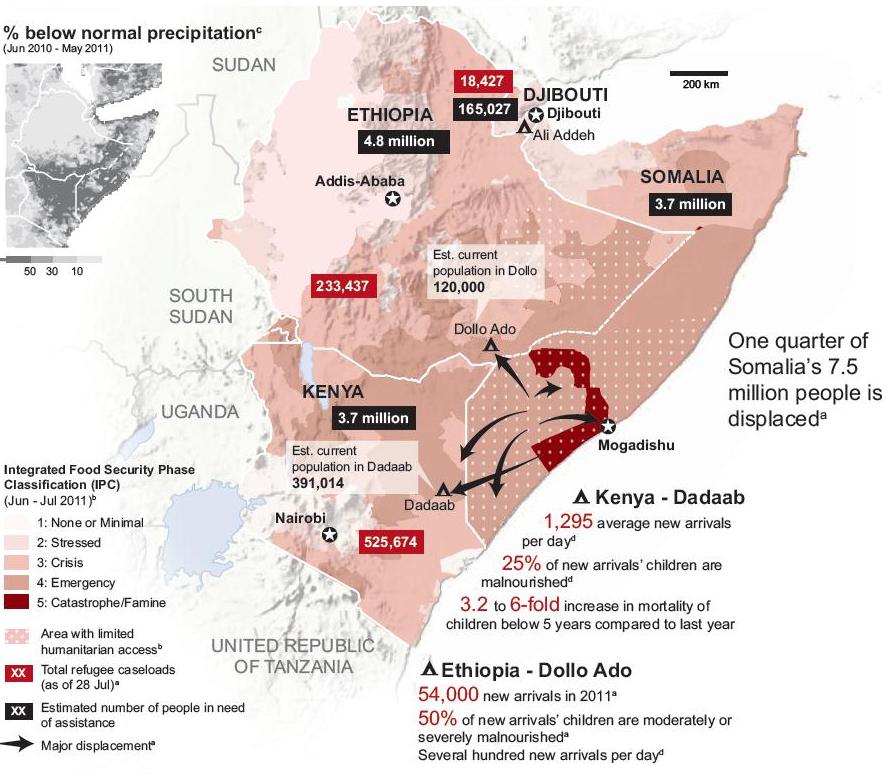|


A collection of reasons
This famine, which is in all its manifestations a global tragedy, did not just happen. It is a result of a catastrophic confluence of failed rains, high food and fuel prices, the vagaries of violent conflict and slow, uncoordinated relief responses. In some countries, like Kenya, the government was caught napping. In others, like Somalia, the government is too busy fighting rebels to effectively think about feeding its own people.
Rains have been erratic over the past two years in the Horn of Africa. In the arid and semi-arid lands of the four countries in need of emergency intervention, the rains have failed for two years. So, when the October-December rains failed last year, the platform was set for the lethal desperation that is happening now.
The already hungry people had to buy food. Yet, the soaring global food prices made it impossible for the poor to afford the little food that reached the regions where people are starving.
The rise in oil prices as a result of the Middle East political upheaval exacerbated the problem. So, even if there was food, distributing it became very expensive due to the higher transport costs.
To cap off an already calamitous situation, al Shabaab militia banned aid agencies from distributing food in Somalia. While the ban was said to be based on religious grounds, it is also possible that the affected aid agencies may have refused to pay extortion demands to the militia.
Given that most of these relief agencies dependent on traditional Western donors, there's also an illegality aspect if they gave money to al Shabaab, because, they will be culpable of funding a recognized terrorist organization.
Because most of the hierarchy of al Shabaab has recently been killed, the group suspects the aid workers of spying for America. That's the reason al Shabaab gave for the ban on CARE and International Medical Corps. United Nations agencies are also affected and al Shabaab banned the distribution of any relief supplies bearing the American flag. The WFP was prevented from distributing aid during harvest time, because al Shabaab believed that would interfere with profits made by local farmers.
While al Shabaab has not banned NGOs from operating, they have issued strict rules, including not using female workers, removing all logos from vehicles and the WFP must buy food from local farmers.
Since the outbreak of the Somali Civil War in 1991 there has been no central government control over most of the country's territory. The internationally recognized Transitional Federal Government controls only a small part of the country. The Islamist al Shabaab controls a large part of the south of the country.
|